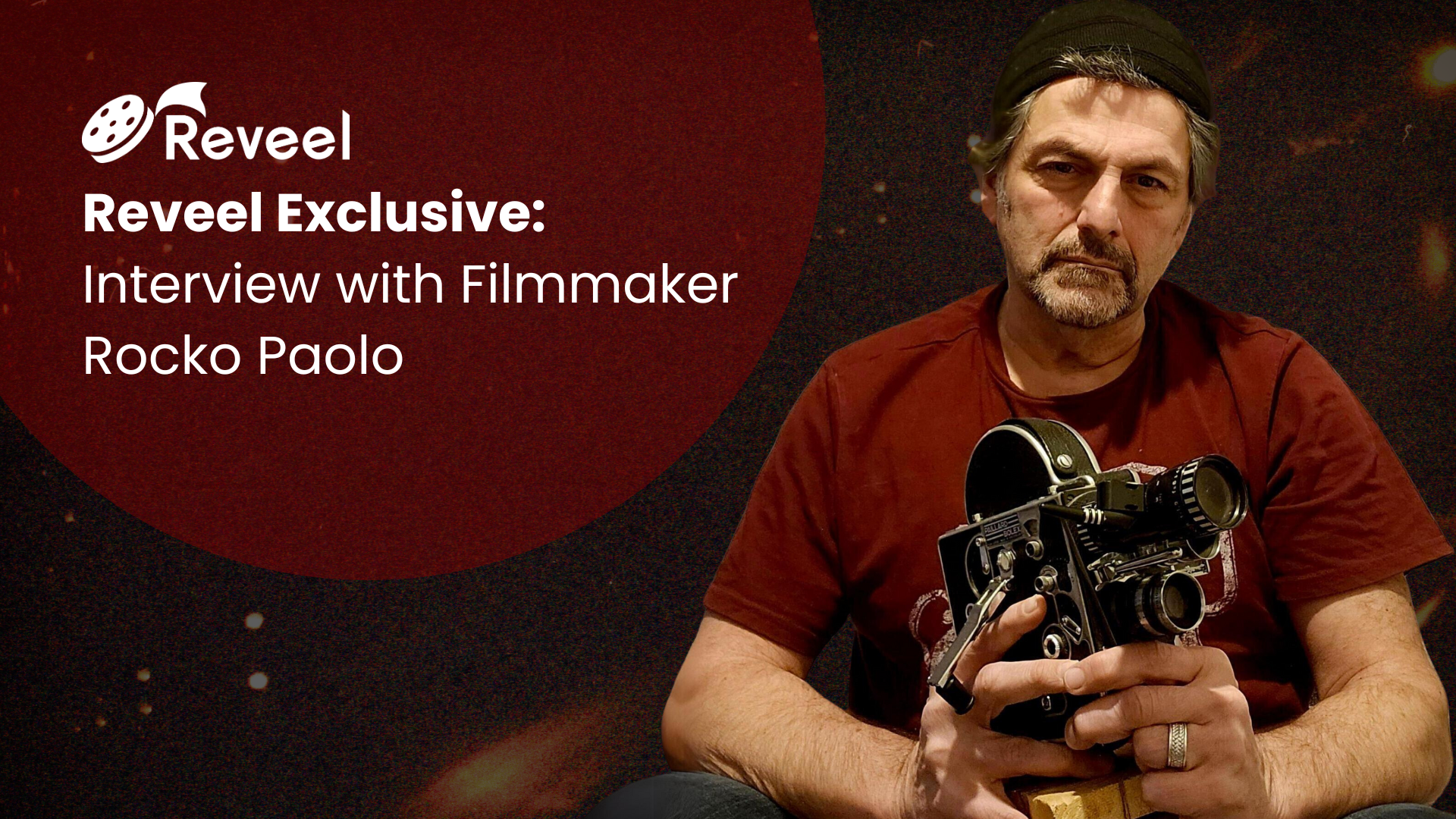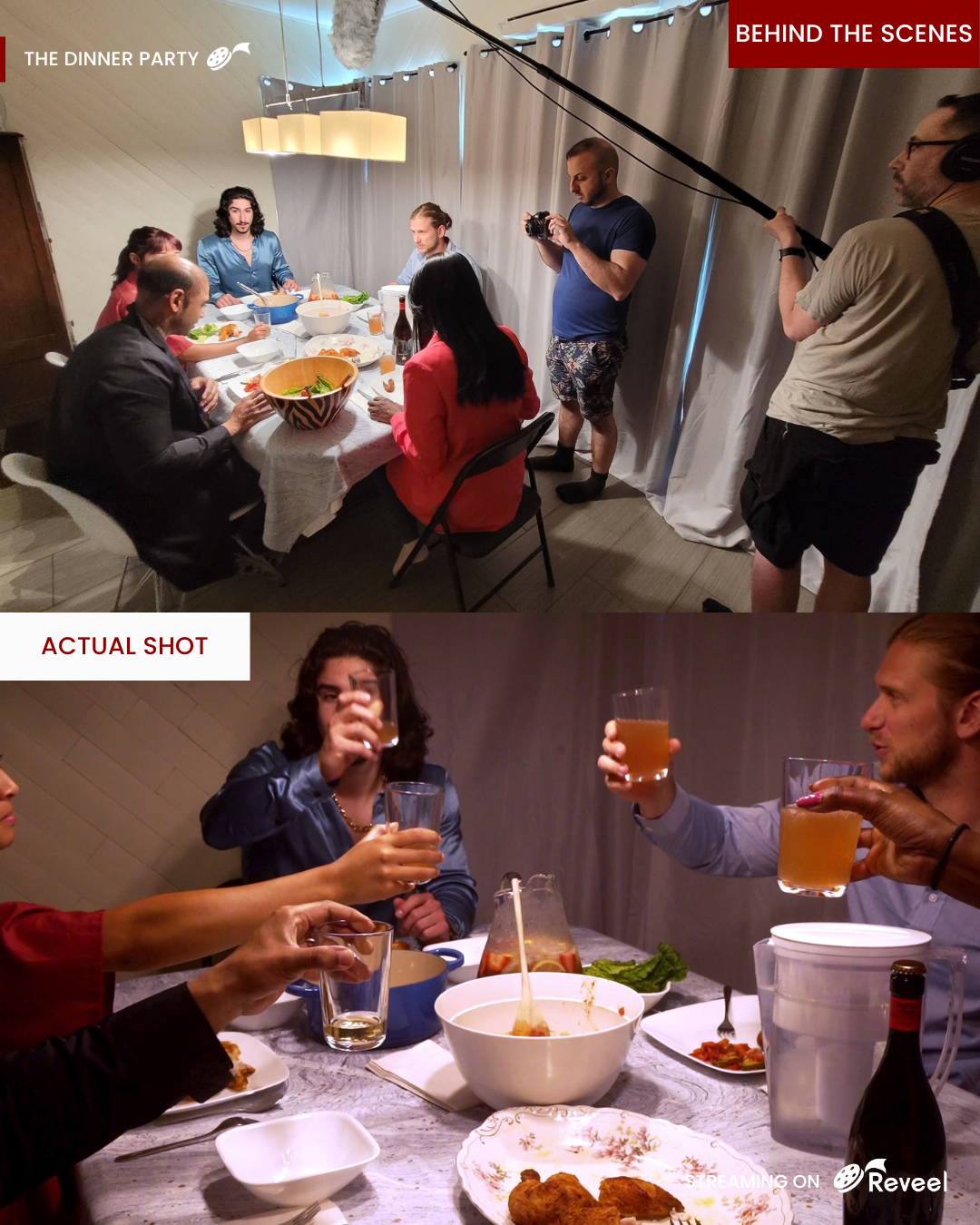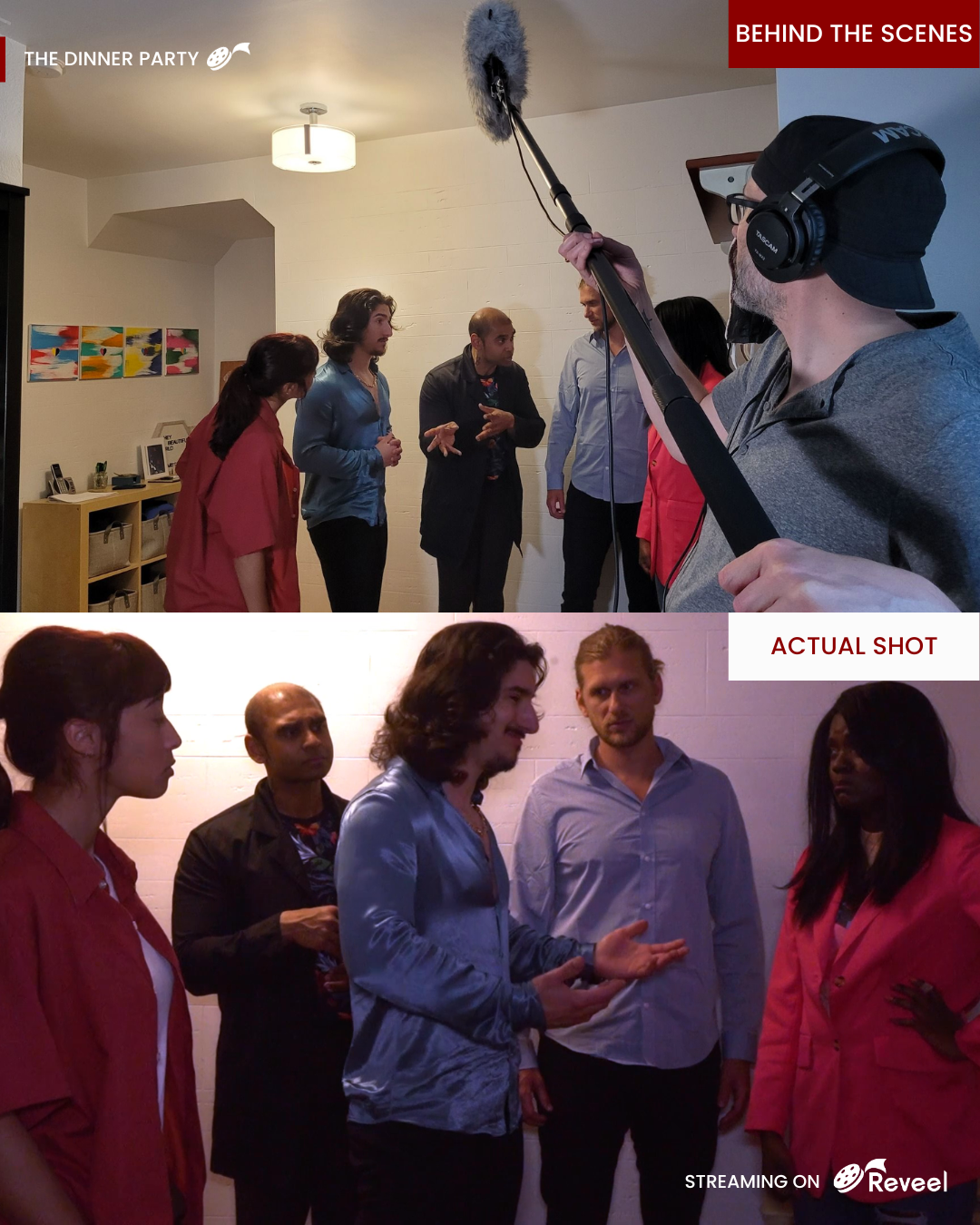
Would you accept an invitation to a dinner party from a stranger?
We sat down with Rocko Paolo, the director of The Dinner Party, to delve into the genesis of such a unique premise and the intricacies of bringing it to life on screen.
1. Can you tell us what The Dinner Party is about in your own words?
The Dinner Party is a story about five strangers that are invited to a dinner party. None of them know why they’re there. They don’t know if one among them is the host. So that’s basically the premise of the film. I guess you can call it a murder mystery type thing.
2. What inspired you to write this story about strangers brought together under odd circumstances?
I was trying to put together a feature film and I wanted to have something that I could easily film in a very few locations. So the idea of a dinner party made sense to me. Everything would be taking place mostly in the dining room, kitchen, maybe entrance of the place that is hosting the dinner party.
3. How did you approach creating the personality and idiosyncrasies of each character?
Originally, I had six to seven characters, six strangers, and one smaller role that was gonna go into the film. So I wanted them to each have obviously a different personality. They are strangers. They did not know each other. I made sure that each person had a trait. One of them was going to be a social media darling. The other one was going to be a gigolo type character. One of them was going to be nerdy. I was going to try and make sure that all the characters were different.
4. What did you want viewers to come away thinking or feeling after watching your film?
Well the film was done in two days so what I really wanted them to take away from this is that you’re able to put together something of quality from acting as well as from the technical side in a very short period of time and what did I want them to get away with? There is a message in this film but you have to watch it to pretty much get it.
5. If the budget was multiplied 50X, would you have done anything vastly different with the film or did the limited resources encourage more creativity?
The limited resources did make it so that I had to be more creative. Obviously, if we had 50 times the budget of zero, that would mean I’d have $50. I filmed it all at my place. So we had to move things around, put stuff into one room. I had to be very creative on how we’re gonna be shooting this. So yeah, it does definitely open up the creativity when you’re limited in resources.
6. According to IMDb, this is your first feature film that you directed. What would you say was the biggest shift or learning curve in going from shorts to a full-length feature format?
I try to make sure that my short films have an act one, two, and three. What that did for me when doing my feature film is that when you’re doing a short film, you’re doing a lot of editing. You’re cutting out a lot of footage to make sure that it’s a short film. With the feature, I had to go the opposite direction and allow myself to have scenes that were longer.
7. Do you have any upcoming projects in the works?
Just finished a short film, which is going into the festivals titled Aberration. This film was based on a dream that I had several years ago and just never got around to filming it, so we’re pushing that right now for the film festivals.
I do have a few music videos that I’m planning to put together for some of the songs I’ve written, and I do have a few other projects that I would like to get up. They’re two-minute short films, so they’re going to be another challenge to try and put together.
Five strangers are invited to a dinner party. They do not know who has invited them or if one among them is the host. Watch The Dinner Party on Reveel






